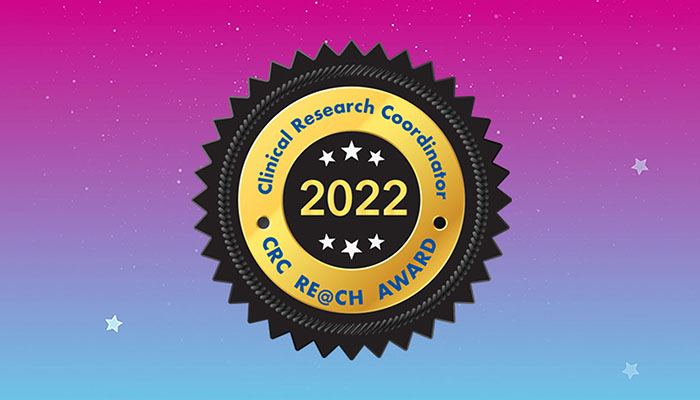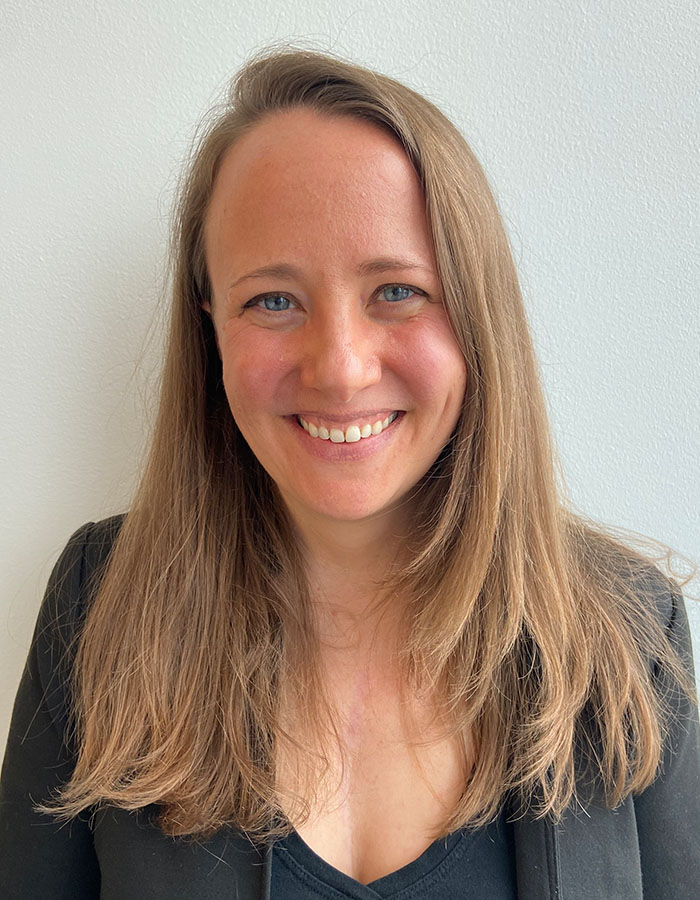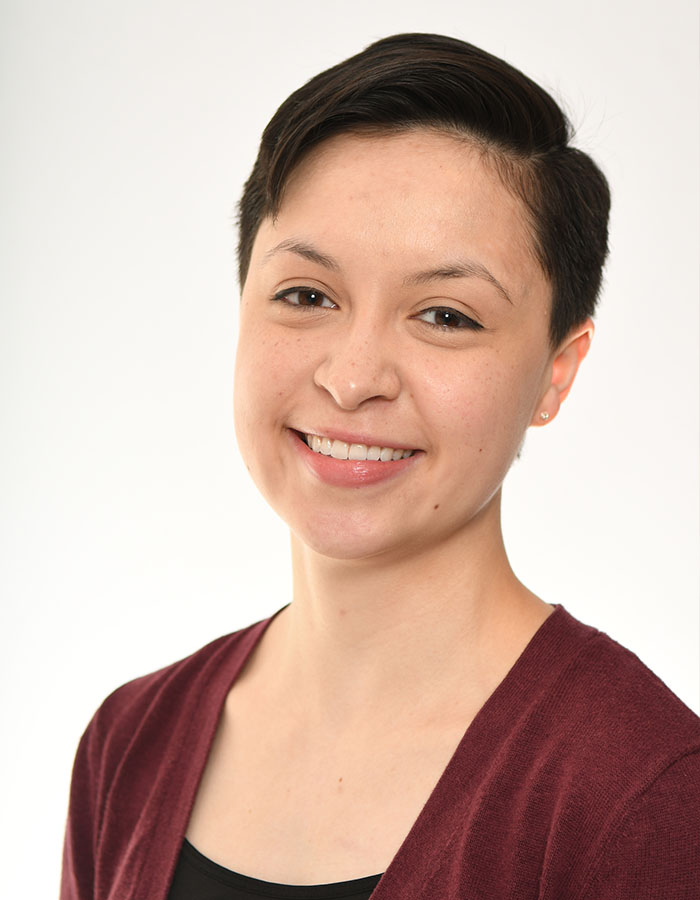HOW CAN WE HELP YOU? Call 1-800-TRY-CHOP
In This Section
Celebrating the Unsung Heroes of Research: The Ninth Annual CRC RE@CH Awards

Celebrating CHOP’s clinical research staff as the backbone of research at the Ninth Annual CRC RE@CH Awards.
By droseyb [at] chop.edu (Barbara Drosey)
More than 130 members of the Children’s Hospital of Philadelphia Research community came together May 10, 2022, for the ninth annual CRC RE@CH Awards. The event celebrates all clinical research staff at CHOP, with a spotlight on those nominated by their principal investigators in recognition of their professionalism, dedication, excellence in clinical research, and significant contributions.
This year’s call for nominations yielded 27 outstanding nominees from 20 departments at CHOP, which serves as a reminder of the agility, creativity, and dedication demonstrated by the clinical research coordinators and staff who support more than $304 million in grant funding and more than 1,000 PIs with active grants and protocols. The nominating committee diligently reviewed and scored the nominations, a task that becomes more challenging each year with the growing number of talented research professionals at CHOP.
Debbie Kawchak, MS, RD, LDN, CCRP, clinical research team manager, Clinical Research Support Office, and chair of the CRC RE@CH Awards committee, welcomed attendees to the virtual event before introducing Richard Aplenc, MD, PhD, MSCE, assistant vice president and chief clinical research officer, and executive sponsor of the CRC RE@CH awards.
“The phenomenal work you do plays a pivotal role in the success of CHOP research,” Dr. Aplenc said. “Your work is fundamental to supporting our patients and the science. The PIs may set up their research concept, but it’s the coordinators and the managers who operationalize a project, bringing it to life and taking it from the start all the way across the finish line.
“Coordinators play such a critical role in the retention of children and their families by creating a real connection with the families between yourselves and the institution. That is often such a positive experience and shouldn’t be understated,” Dr. Aplenc continued.
And the winners are ….
Sarah McCague, MS, administrative manager-research
Research Pathology and Lab Medicine
Nominated by Lindsey George, MD, director, Clinical In Vivo Gene Therapy

Sarah McCague, MS, administrative manager-research, RE@CH Award Honoree
Among McCague’s achievements are serving as the lead CRC for phase I-III trials that resulted in the first commercially approved adeno-associated viral (AAV) vector. Dr. George described McCague in her nomination letter as “the general heart and soul of efforts to establish clinical trial infrastructure for in vivo gene therapy,” adding that McCague leads the program that solely manages the clinical operations and local regulatory aspects of six AAV trials and provides support to two additional trials.
“Sarah and I have worked together for approaching 10 years,” Dr. George said during the awards event. “She has a wealth of experience that’s probably unparalleled by anyone in the field on the regulatory aspects of adenoviral vectors and the operations involved in these very complex trials. She is dedicated to the work, does a fantastic job, has remarkable leadership skills, and is a great mentor to other CRCs. I very much appreciate everything Sarah does.”
A beaming McCague shared her thanks to Dr. George for the nomination.
“It’s an honor to be among this group of very talented coordinators,” McCague said. “Thank you to my colleagues in Clinical In Vivo Gene Therapy because they make my job easy and fun. I’m honored to accept this award.”
Katherine (Katie) Wu, MPH, clinical research coordinator III
PolicyLab and General Pediatrics
Nominated by Meredith Matone, DrPH, MHS, scientific director, PolicyLab

Katherine Wu, MPH, CRC III, RE@CH Award Honoree
Doug Strane, MPH, health policy research program manager in PolicyLab, spoke at the awards event on behalf of Wu’s PolicyLab team.
“I truly do not know how our team could do our jobs without Katie’s diligence and organization,” Strane said. “Katie values and respects the patients who participate in our research and ensures that their voices are elevated, respected, and incorporated in the decisions that we make, both from a research perspective and from a policy recommendation perspective.”
Wu’s prior experience as a community health worker enables her to bring acute empathy and understanding to her encounters with families and patients. In her nomination, Dr. Matone highlighted Wu’s interactions with participants in a project about a therapeutic intervention for mothers engaged with substance use support programs. Her approachable personality and professionalism also set her colleagues and collaborators at ease.
“I’m honored to receive this award, and I’m humbled to have been nominated alongside so many talented and dedicated CRCs and staff across CHOP,” Wu said. “I want to thank my team in PolicyLab, specifically Doug Strane, Dr. Matone, and Dr. Rubin for their ongoing support, encouragement, and mentorship.”
Wu reflected on the generosity of all of research participants, particularly for the work in which her team engages. “I recognize that they are giving us their time, energy and, in many cases, their emotions so that we can do our jobs. Our work in research and in policy wouldn’t be possible without them, and I’m grateful for that.”
Relational Foundation
Keynote speaker Laura Mercer-Rosa, MD, MSCE, FASE, an attending cardiologist in the Cardiac Center at CHOP, delivered an inspirational presentation culled from her research experience. As a pediatric cardiologist and a clinical epidemiologist, her work is focused on studying the outcomes of treatments for hundreds of children.
Dr. Mercer-Rosa described clinical research staff as the propelling force behind clinical research. She noted that, for even the least complex studies that CRCs oversee, the project involves screening; phone calls; mailing; scheduling risk counseling; meeting with patients and families; explaining the research procedures; obtaining and preparing samples; entering data; logging patient information; and handling all the regulatory aspects.
“Clinical research coordinators do all this – and so much more – with a passion for what you do, compassion for patients and families, relentless persistence, dedication, organization, and efficiency,” Dr. Mercer-Rosa said. “While there are many individuals involved in a successful study, the research coordinator is at the center conducting the orchestra to play the perfect tune. Clinical research is not possible without you and your amazing work.”
Reflecting on her journey to CHOP that began at medical school in the south of Brazil 30 years ago, Dr. Mercer-Rosa realized that successful clinical research stems from building strong relationships through open, honest communication, demonstrating respect and appreciation for others, and accepting support when you need it. She encouraged attendees to pursue their careers with passion and always do their best, but to remember there’s no perfection, only improvement.
Dr. Mercer-Rosa closed with a quote from Pele, one of the greatest soccer players of all time: “Success is no accident. It is hard work, perseverance, learning, studying, sacrifice and most of all, love of what you are doing or learning to do.”
Full Circle: From Patient to CRC
Zane Christmyer, who underwent heart surgery when he was just a couple days old and then visited CHOP four times a year throughout his childhood and adolescence, rounded out this year’s CRC RE@CH Award celebration by sharing his perspectives. Currently a third-year medical student at Albert Einstein Medical College, Bronx, NY, he was born with tetrology of Fallot, a congenital heart defect.
“It was a treat to come to CHOP,” Christmyer said. “I would play hide-and-seek with Dr. Rychik, and my mom would let me get McDonald’s on the way home.”
But something more than follow-up visits and fast food bound the Christmyer family to CHOP – Christmyer participated in a study looking at the effects of a drug used in treating heart defects and was also part of a genetic study that uncovered a common gene among Christmyer, his brother, and their cousin, all of whom were born with heart defects.
“Growing up this way made me a little different from the other kids, but I think we’re all a little different,” Christmyer said.
As an adult, Christmyer worked in research at CHOP as a CRC with the doctors and nurses who gave him a second chance at life. During that time, he gained even more respect for the countless hours and detailed work coordinators did to guide him through the trials in which he had participated.
“Just the thought of regulatory binders makes me shiver,” he joked. “But my favorite part was all the learning opportunities. They say, ‘Never meet your heroes,’ but I met mine, and I really liked them and respect them even more now.”
Christmyer chose Albert Einstein for his medical education due to the school’s emphasis on research, and he is currently handling the coordinator role for a study about congenital heart disease. He said CHOP prepared him well.
“The work you do provides the backbone of research,” he said. “CRCs usually are the unsung heroes of research, but today you are being celebrated.”